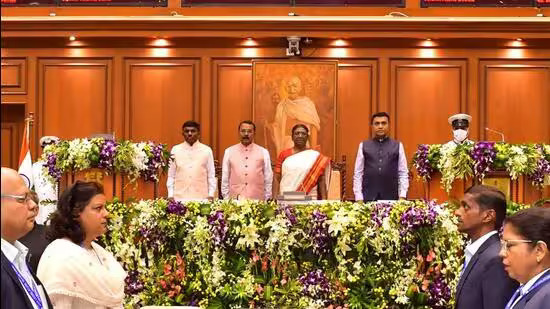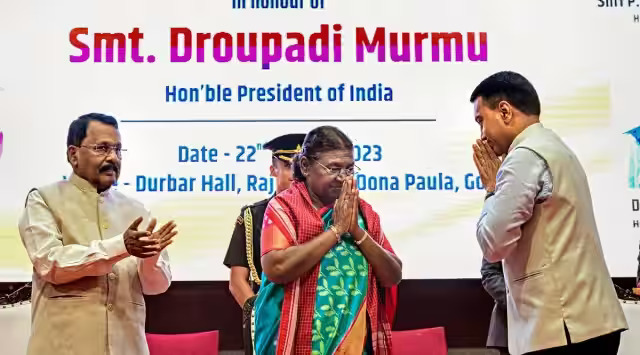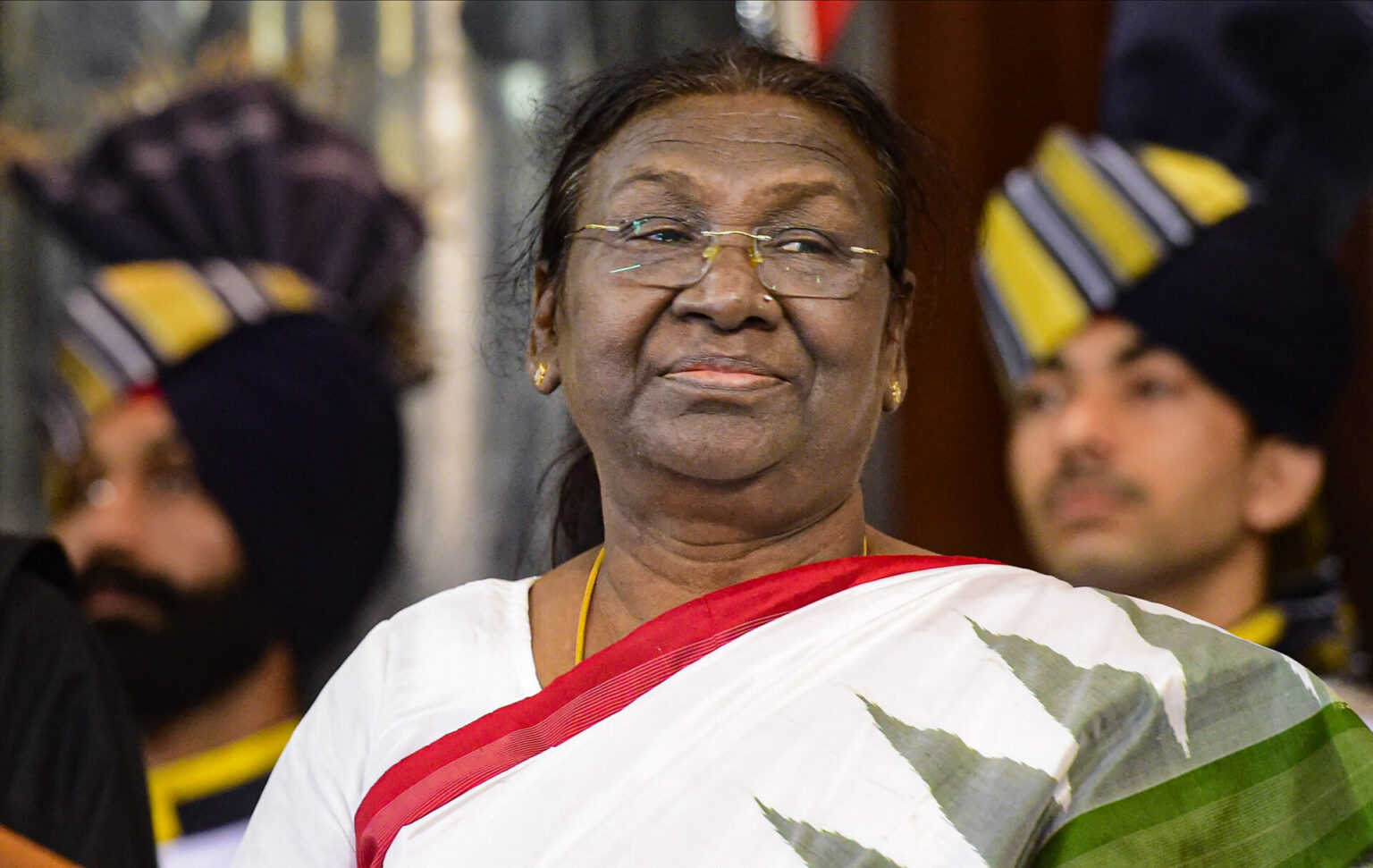
On Tuesday, President Droupadi Murmu, who is on a three-day visit to Goa, commended the state’s multicultural culture and said he was proud of the state’s citizens for adopting the Uniform Civil Code (UCC), which is in line with the Constitution.
Murmu remarked, “It is a matter of pride for Goa that people here have adopted the Uniform Civil Code,” during a civic event hosted by the state government on Tuesday evening at the Raj Bhavan. She further talked about a prime example of the cosmopolitan culture in Goa being the common civil code, which accords equal rights to women and men from all communities who live there and how this Code is in accordance with our Constitution’s directives and serves as a positive example for the entire nation.

She continued by saying that the state’s multicultural culture gives women an equal footing.
Goa was praised for its efforts to meet the standards of the Sustainable Development Goals and emerge as one of the top states for development. While focusing on the area of the working sector where women’s participation was lower, President Murmu was pleased to note that 60% of students at higher educational institutions were female.
“But there is one area of concern that you need to reflect upon, that is the participation of women in public life and in the workforce. I can see that in this assembly, the representation of women is very low. I have been told that the proportion of working women in Goa is also low. It is unbecoming of a liberal society such as Goa. You have to try and change this situation,” she said the lawmakers at a special session of the Goa Legislative Assembly.

Murmu stressed the need of sustaining the state’s thick forest cover and called for measures to involve tribal tribes and other forest dwellers as partners in development while upholding their cultural practises. In addition, the president helped Bhairo Kale, an 80-year-old Goan forest inhabitant who had been fighting for years to prove his rightful title of a plot of land in a community in the coastal state that he had inherited from his family. At the same civic reception, President Droupadi Murmu presented him with the papers that allowed him to realise his ambition of owning a piece of land in Maplan Village, Dhandandora Taluka. Kale said, “I am thankful to Goa Chief Minister Pramod Sawant and Forest Minister Vishwajit Rane for making our dream come true.”
Murmu asserts that Goa, in addition to being a well-liked vacation destination, is a vital hub for education, trade, business, industry, technology, and naval defence.
The President noted the state’s Kranti Divas while paying homage to the heroes who had sacrificed their lives for the nation’s independence struggle, adding, “A few days ago, on August 15, we celebrated Independence Day. In this context, it is natural to recall that on June 18, all residents of Goa celebrate ‘Kranti Divas’ [Revolution Day]. At a public meeting in Goa on June 18, 1946, Dr Ram Manohar Lohia had given the call for a revolution against the oppressive [Portuguese] regime in Goa at the time. Finally, on December 19, 1961, foreign rule came to an end in Goa. On that day, the dream of the freedom fighters of Goa and the entire country was fulfilled.”
Chief Minister Pramod Sawant, Governor P S Sreedharan Pillai, and Union minister Shripad Naik were all present at the occasion.
Governor P S Sreedharan Pillai remarked during his speech on Mahatma Gandhi’s emphasis on the need for social freedom in addition to political freedom and advocated for villagers.













